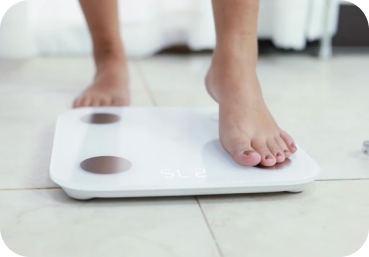Helping You Feel Confident in Your Body
For years, we’ve been dedicated to treating patients with lipedema, each with their own unique set of symptoms. Some patients are slim but struggle with noticeable swelling and fat deposits in their legs, while others are overweight and require a combination of lipedema treatment and obesity management. We meet these diverse needs with personalized care tailored to each individual. Compression therapy is a key part of our approach, providing quick relief and, when necessary, preparing the body for optimal liposuction results.
How Can Doctors Diagnose Lipedema?
How Does Treatment at the Lipedema Center Munich Work?
What Are the Surgery Costs at the Lipedema Center Munich?
Comprehensive Treatment Concept at the Lipedema Center Munich
- Questionnaire
- Examination (including palpation)
- Lipedema Staging
- Laboratory Diagnostics
- Information about the surgical procedure
- Lipedema Surgery
- 3 Postoperative Check-ups
- Surgical Needling
- Radiofrequency-Assisted Lipolysis
- Extensive Skin Tightening
Dedicated Support Throughout Every Stage of Life
Lipedema flare-ups can often occur during hormonal changes, such as puberty, pregnancy, or menopause. We are here to support you through every stage of life, offering you the best possible treatment.

Young Women

Family Planning

Menopause

Get an Overview of Lipedema


Causes of Lipedema
he exact causes of lipedema remain largely unknown, but it is suspected to have a strong genetic component. This condition is primarily found in women and is often associated with hormonal changes. Many patients report the onset or worsening of symptoms during puberty, pregnancy, or menopause. Although lipedema is not caused by obesity, it can be aggravated by weight gain. The fat deposits characteristic of lipedema are not simply a result of excess calorie intake but are thought to be linked to a dysfunction in the body’s fat storage and metabolism. Researchers are still investigating the exact mechanisms behind this condition, but the combination of genetic predisposition and hormonal influences appears to play a crucial role in its development.

Lipedema Symptoms
Lipedema is a chronic, progressive disorder primarily affecting the legs and, less commonly, the arms. It is characterized by a symmetrical, disproportionate accumulation of fat that does not respond to diet or exercise. The affected areas are often tender to the touch and prone to bruising. As the condition progresses, the fat deposits can lead to significant pain and mobility issues. Unlike regular obesity, the feet and hands are typically not affected. Patients often report a heavy, tight feeling in the legs, and in more advanced stages, the skin may become dimpled or lumpy. The condition can also lead to psychological distress, as the visible changes in body shape can affect self-esteem and quality of life.


Stages of Lipedema
Lipedema is a progressive condition that typically develops in three stages:
Stage 1: The skin appears smooth, but there is already an increase in subcutaneous fat. The affected areas may feel soft and doughy, and small nodules can often be felt beneath the skin.
Stage 2: The skin surface becomes uneven, and larger nodules can be felt. The skin may develop a dimpled or “mattress-like” appearance due to the increasing size of the fat deposits.
Stage 3: The fat deposits grow significantly, leading to pronounced bulges and folds of skin. The skin may become hardened (fibrotic), and mobility can be severely impaired. At this stage, lipedema can cause significant discomfort and pain, further reducing the patient’s quality of life.
Lipedema often progresses if not treated, and early diagnosis and intervention can help manage symptoms and slow the progression of the disease.
Private Practice Lipedema Center Munich: Our Highly Qualified, Multidisciplinary Medical Team Is Here for You!
The head of the Lipedema Center, Prof. Dr. Kovacs, has been a practicing surgeon for 25 years. He is highly respected by both colleagues and patients for his clinical expertise and research contributions. Over the years, he has received numerous awards. Together with specialists in lymphology, phlebology, and general medicine, he ensures comprehensive care at the Lipedema Center Munich, aiming to quickly alleviate your symptoms.
Which Doctors Treat Lipedema?
What to Expect from Treatment
Prof. Dr. Kovacs: Committed to Your Well-being
Treating lipedema has been a focus of Prof. Dr. Kovacs for many years. As the head of the Lipedema Center Munich, he places great importance on a multidisciplinary treatment approach. This is why he collaborates closely with colleagues specializing in phlebology, lymphology, and with physiotherapists. Lipedema patients often endure a long and difficult journey, sometimes seeing many doctors before finding the right care.
“When patients come to us, it’s crucial that we show understanding for the struggles they’ve faced. For the first time in a long, long while, they finally feel truly heard.”
Prof. Dr. Kovacs listens to his patients and encourages them with empathy and care.


Prof. Dr. Kovacs listens and inspires hope. There are ways to alleviate your symptoms!
With his extensive experience in plastic, aesthetic, and reconstructive surgery, he is responsible for all surgical procedures. Each operation is carefully planned according to the stage of the condition and tailored to the individual needs of the patient, with close consultation throughout the process.

Dr. Kovacs
Consultation on Lipedema and Related Topics

Managing Lipedema Pain
Even patients with a mild form of lipedema can experience significant pain. We provide tips on how to alleviate lipedema-related discomfort.

Dietary Recommendations for Lipedema Patients
Since many lipedema patients also struggle with obesity, we explain how a specialized diet can help ease lipedema symptoms.

Losing Weight Despite Lipedema
Lipedema patients often feel that losing excess weight is impossible. However, it is possible to reduce excess weight with the right approach.
Life After Lipedema Surgery – Testimonials from Former Patients





